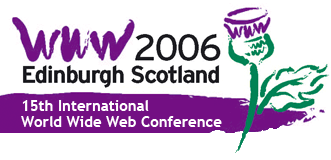Daniel Weitzner

Daniel Weitzner is Director of the World Wide Web Consortium's Technology and Society activities. As such, he is responsible for development of technology standards that enable the web to address social, legal, and public policy concerns such as privacy, free speech, security, protection of minors, authentication, intellectual property and identification. Weitzner holds an appointment as Principal Research Scientist at MIT's Computer Science and Artificial Intelligence Laboratory and teaches Internet public policy at MIT.
As one of the leading figures in the Internet public policy community, he was the first to advocate user control technologies such as content filtering and rating to protect children and avoid government censorship of the Internet. These arguments played a critical role in the 1997 US Supreme Court case, Reno v. ACLU, awarding the highest free speech protections to the Internet. He successfully advocated for adoption of amendments to the Electronic Communications Privacy Act creating new privacy protections for online transactional information such as Web site access logs.
Before joining the W3C, Mr. Weitzner was co-founder and Deputy Director of the Center for Democracy and Technology, a leading Internet civil liberties organization in Washington, DC. He was also Deputy Policy Director of the Electronic Frontier Foundation. Mr. Weitzner has a degree in law from Buffalo Law School, and a B.A. in Philosophy from Swarthmore College.
His publications on communications policy have appeared in the Yale Law Review, Global Networks, MIT Press, Computerworld, Wired Magazine, Social Research, Electronic Networking: Research, Applications & Policy, and The Whole Earth Review. He is also a commentator for NPR's Marketplace Radio.
Synopsis
Broken Links on the Web: Local Laws and the Global Free Flow of Information
Across the World Wide Web there is government censorship and monitoring of political messages and "morally-corrupting" material. Google have been in the news recently for capitulating to the Chinese government's demands to ban certain kinds of content, and also for refusing to pass logs of browsing habits to the US government (while Microsoft and Yahoo complied wth the request). How can the Web survive as a unified, global information environment in the face of government censorship? Can governments and the private sector come to an agreement on international legal standards for the free flow of information and privacy?
|

